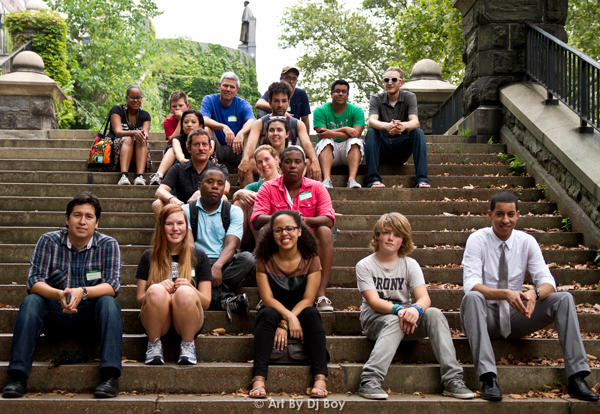BY AJ Sidransky (@AJSidransky)
In May and June of 1944 approximately 424,000 Hungarian Jews were deported to Auschwitz. Most of them were murdered upon arrival. Among them were my great uncle, Zoltan Grunfeld, his wife Pepi Rusznak and their sons, Siju and Piki, both under the age of 15. Writing their names makes them seem more real to me and in some way also gives an identity to the other 423,996 victims. Because you see that’s what the Nazis set out to do, to erase these people from history. The German word for this is vernichtung, to make nothing of something.
On Tuesday July 14, 2015, 71 years later, Oskar Gruning, 94 years old, was convicted for complicity in the mass murder of Jews during WW II. He was known as the Accountant of Auschwitz. He wanted a desk job. That’s what he told the court. He seized cash and valuables from arriving prisoners. He claims there was nothing he could have done to stop the killing.
Through the decades and a half a world away, I am connected to Herr Gruning the SS soldier, by only three degrees of separation. I knew my grandfather, my grandfather knew his brother and his brother, my uncle may well have met Gruning.
Gruning sat at a desk in Auschwitz. He likely was one of the last persons to encounter my uncle on that fateful day in May of 1944 when he and his family arrived, were stripped of their cash, their valuables, their clothing and their dignity then escorted unceremoniously into a gas chamber disguised as a public shower, gassed to death and incinerated in an oven. He is certainly the last person on the planet today out of 7 billion people who may have had any contact with my uncle.
They are long gone now. Their ashes mixed with the soil of southern Poland, filtering down into the water table nourishing the grass that grew all too green after the killing stopped in a place where everything was grey from the ash that billowed from the chimneys of the crematorium for all too long.
I feel in some way like I know Herr Groner. Like what he did to them he did to me. I never had the privilege of knowing my uncle. I have been told by those who did, that he was a gentle, quiet, thoughtful man like his brother, my grandfather. His wife, I am told, was bubbly and effervescent, his children charming and smart. I hope Herr Groning lives long enough to serve out his entire sentence. Death would be too kind for him.
We learn an important lesson here. History is never very far from us, rarely more than six degrees of separation. Whether it’s the horrors of Nazi extermination camps, or the burning eyes of Dr. Martin Luther King on a bridge in Selma, or the heartless cruelty of Slavery, or the murderous personal genocides of Raphael Trujillo or Pol Pot or Josef Stalin it’s not a picture in a book. It happened to someone who knew someone we know.
A J Sidransky is the author of two novels set in upper Manhattan, Forgiving Maximo Rothman and Stealing a Summer’s Afternoon. His third novel Forgiving Mariela Camacho, also set in the Heights will be released September 30, 2015. He is a frequent contributor to Uptown Collective. He is also a graduate of the French Culinary Institute. He lives in Washington Heights. Check out his website at www.ajsidransky.com
Related:
Stealing A Summer’s Afternoon – The Review
Uptown Reads: Forgiving Maximó Rothman
We invite you to subscribe to the weekly Uptown Love newsletter, like our Facebook page and follow us on Twitter, or e-mail us at [email protected].


